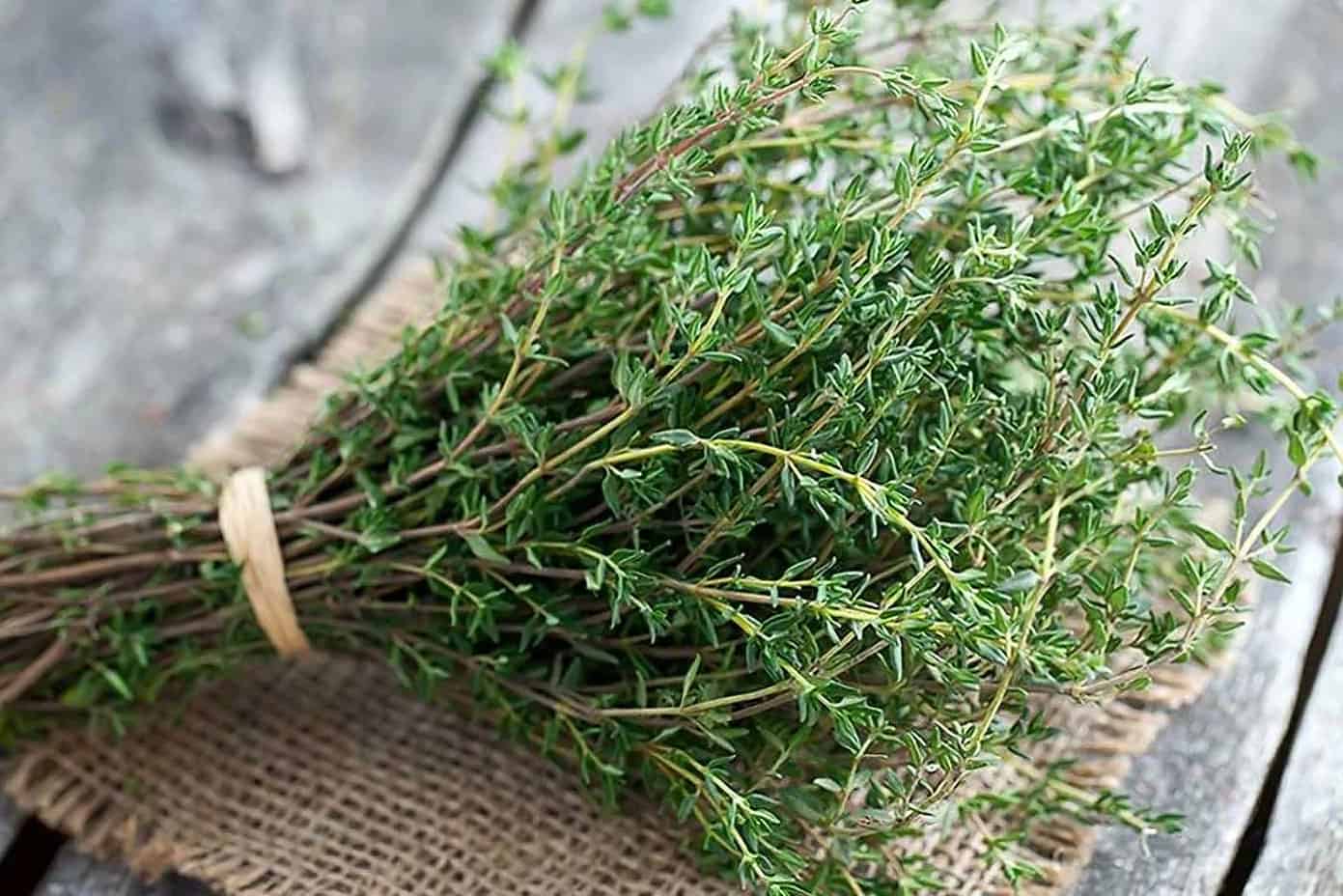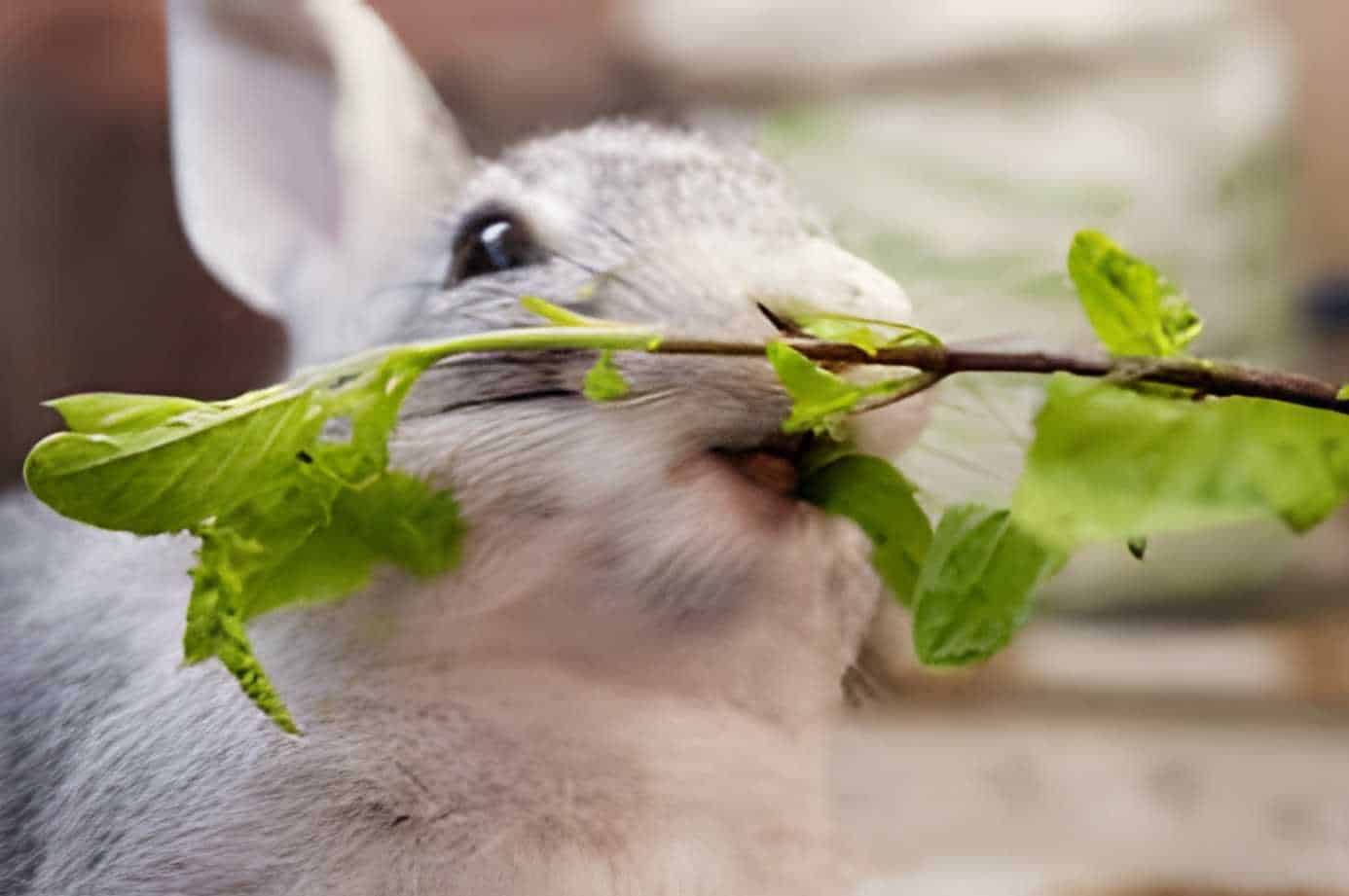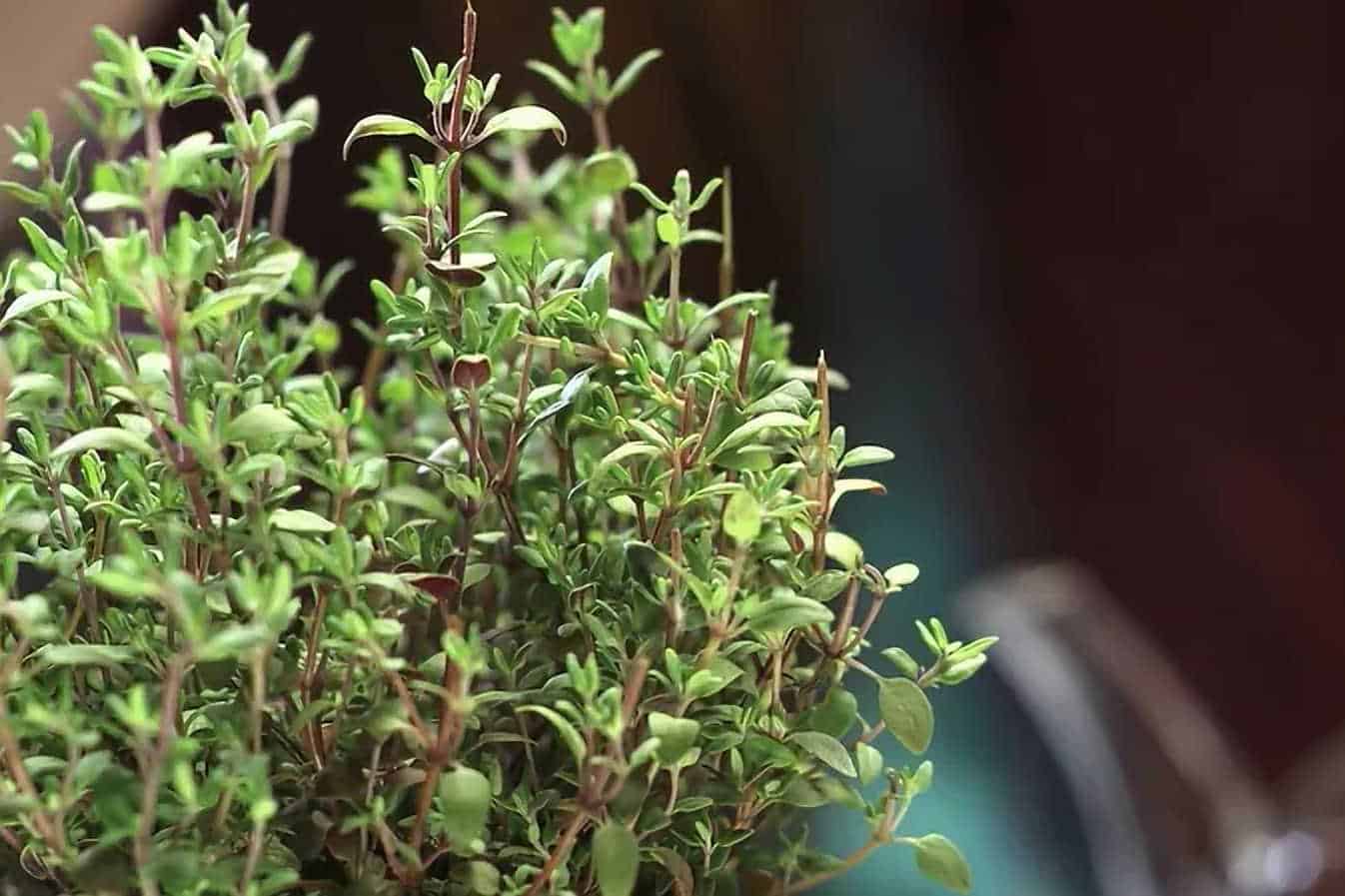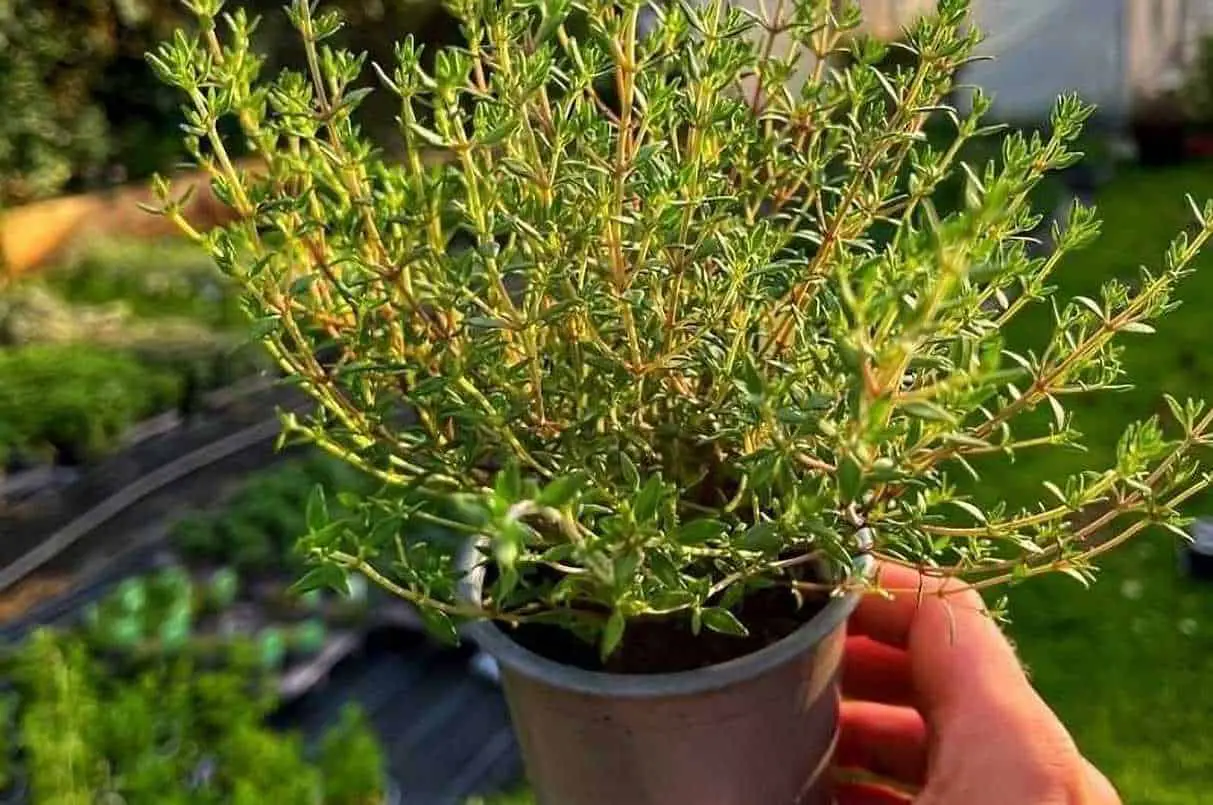Not only does thyme add instant flavor to your cooking, but its oil, flowers, and leaves are also beneficial; it also has ornamental, dietary, and medicinal functions.
This Mediterranean herb is believed to fight bacteria, fungi, and insects that may be plaguing humans and animals. Amazing, right? But before you give your rabbits thyme, you need to know whether it is safe and if there are any precautions you should consider.
Is Thyme Good For Your Rabbits?
Thyme belongs to the aromatic evergreen herbs of the mint family, Lamiaceae. Similar herbs in this category are; hyssop, catnip, mint, rosemary, salvia, bee balm, oriental motherwort, marjoram, oregano, sage, lavender, basil, perilla, and savory.
Thyme has over 200 varieties, with the smell ranging in intensity. The most common are lemon thyme, common thyme, juniper thyme, orange balsam thyme, English thyme, silver thyme, caraway thyme, Pennsylvania dutch tea thyme, Italian oregano thyme, etc.
However, some smell too strong for your rabbits.
In light of this, thyme is safe for your rabbits. However, some varieties have a strong smell, which your rabbits may find upsetting. You should stick to feeding them common thyme.
Rabbits can eat both dried and fresh thyme, but it must be fed to them in small quantities and with utmost care.
Just a small amount contains vitamins A, B, and C, which help boost the immune system. Likewise, it is rich in minerals that promote good health – magnesium, potassium, manganese, zinc, calcium, and iron.
It also has natural compounds that aid in curing bacterial and fungal infections.
As much as thyme is rich in medicinal value, it must not exceed 5% of your rabbits’ diet. Herbs like thyme should be part of the treats you give your bunnies moderately.
When you want to feed thyme to your rabbit, harvest it before flowers. However, most bunnies do not like pungent smells; some may nibble it, while others ignore it completely. It’s okay if your rabbit isn’t thrilled by it.
Can Rabbits Eat All Parts of Thyme?
All parts of thyme can be fed to rabbits; the flowers, the leaves, and even the stem. But you need to introduce thyme to your rabbit slowly before it adjusts. You can give your rabbits either dry or fresh leaves; both are safe—likewise, the stem, whether it’s dried or fresh.
But if your rabbits find the strong smell repulsive, they might refuse to eat it. As for the flowers, that also depends on your rabbit’s preference. If they like it, they will eat it.
Harvesting your thyme early allows you to collect soft leaves and stems before it flowers and becomes woody. Ensure you wash fresh thyme under running water before you give your rabbits. You can also mix with leafy greens like spinach, cauliflower, cabbage, and kales.
10 Benefits of Thyme For Your Rabbits
According to the USDA, here are some of the nutritional values of a 100g of thyme:
| Name | Amount |
| Water | 7.79 g |
| Fibre | 1160 KJ |
| Energy | 276 kcal |
| Calcium | 1890 mg |
| Magnesium | 220 mg |
| Zinc | 6.18 mg |
| Sodium | 55 mg |
| Copper | 0.86 mg |
| Iron | 124 mg |
| Manganese | 7.8 mg |
| Phosphorus | 201 mg |
| Carbohydrate | 63.9 g |
| Protein | 9.11 g |
Rabbits require lots of nutrients. They depend on high-fiber and low-energy food, making thyme a suitable option. Below are the benefits of feeding thyme to your rabbits;
- Essential nutrients: thyme provides your rabbits with manganese, magnesium, iron, potassium, vitamins A and C, and copper.
- Deworming: instead of deworming your rabbit with medicine, you can choose to deworm it by feeding it thyme for a certain period.
- Digestion: thyme has anti-infection properties that fight the bacteria that cause indigestion. It promotes the well-being of the digestive tract. Thymol, one of its active compounds, stimulates peristaltic muscle movements, and this does not allow food to be held in the stomach for too long.
- Bloating: thyme reduces bloating caused by malabsorption by its antispasmodic properties.
- Gasses: the herb prevents the formation of unnecessary gasses in the gastrointestinal tract. It also supports the removal of excess gasses.
- Diarrhea: thyme is a good herb for treating diarrhea in rabbits.
- Inflammation: thyme has caffeic acid and luteolin, which give it anti-inflammatory and anti-microbial properties.
- Heart health: thyme has blood-thinning effects that assist in preventing cardiovascular diseases.
- Fever: it also eases the symptoms of respiratory illnesses and reduces fever in rabbits.
- Bacteria and fungal infections: thyme has natural chemical properties that help cure bacteria and fungal infections.
Picking And Growing Fresh Thyme For Your Rabbits
As much as thyme is very good for your rabbit, you have to be careful of the variety you feed to your rabbit. Garden thyme is the most recommended for rabbits.
It is drought friendly, so it can thrive in a place with little water. When picking thyme for your rabbit, consider the following:
- First, ensure that the thyme is not spoiled. Spoilt thyme is soft and discolored. Sometimes, it even has an off-putting smell or hideous appearance.
- Second, don’t give your rabbits lemon thyme straight away because it has a strong smell, which can scare your rabbit and make them not want to eat thyme again.
- Also, don’t give your rabbits thyme varieties with a pungent smell. You can first start with garden thyme before exploring other culinary types. Washing the thyme under running water may help reduce its strong smell but don’t wash for too long.
Despite the guidelines above, getting fresh and organically-grown thyme for your rabbit can be quite expensive. Rabbits don’t do well with chemically-grown plants as their digestive system is sensitive.
Any herb you feed your rabbit must be free from pests and pesticides. Only buy thyme from local farmers or reliable grocery stores. However, you can choose to save yourself money and be sure of quality by growing thyme in your garden. You can use the ground or a flower box.
Note that thyme loves the sun, so if you are planting it in a garden, it must be a place with direct sunlight and not under the shade. If you use a container, place it by the window to access direct sunlight.
Ensure the container is large as well. Thyme does well in almost any type of soil, so don’t be worried if your garden’s soil isn’t loamy enough. However, it should have some moisture.
Plant each stem twelve inches away from the other as thyme proliferates. Besides, it’s usually the stem that’s planted, not the seeds. Growing thyme seeds can be grueling because of uneven and slow germination.
In addition, plant thyme with other drought-tolerant perennials since the soil surrounding it needs to be dry. Water it only when the soil is dry.
Growing thyme isn’t stressful – it’s free from pests, so you don’t need to apply pesticides. Simply don’t plant it in soil with excessive moisture or water it to decay.
What Other Herbs Can You Mix With Thyme For Your Rabbits?
Just because thyme has lots of nutrients does not mean that you should only feed your rabbits with only thyme. Here are some other nutritious herbs you can feed your rabbits.
- Echinacea: known as coneflowers, echinacea belongs to the herbaceous flowering plants in the daisy family. It supports rabbits’ health by fighting off infections and viruses. It has immune-stimulating and antioxidants properties.
- Basil: contains some essential nutrients that a rabbit requires, such as calcium, vitamins A and K. It also lowers the blood sugar and detoxifies the rabbits from some harmful toxins.
- Sage: it is excellent potassium, vitamin K, and iron source. It should be fed as an occasional treat to your rabbit if it likes to eat. It contains antioxidants that neutralize any free radicals and also boost immunity. It is suitable for oral health and may support the brain health of your rabbit. It should be moderately fed to your rabbits.
- Dill: is an annual herb in the celery family, Apiaceae. It is one of the healthiest herbs you can feed your rabbit but must be given moderately. It is high in anti-inflammatory and antioxidants. It reduces oxidative stress produced by free radicals and contains terpenoids that protect the heart, liver, brain, and kidneys.
- Dandelion: for a rabbit to have a functioning digestive system, its diet must be high in fiber. Dandelion has high fiber content and is safe to add to your rabbit’s diet. It also contains other nutrients like beta-carotene, iron, calcium, potassium, inositol, zinc, biotin, magnesium, and the B Vitamins. It is a natural body tonic full of phytonutrients.
- Lavender: native to Cape Verde and the Mediterranean, lavender belongs to the same family as thyme. The stem, flowers, and buds are safe for your rabbit to eat. It has phytochemicals like limonene, which support the secretion of digestive enzymes in the liver. It also helps in carcinogen detoxification. It can be fed to your rabbits fresh or dry, but it must be done moderately.
Summary
Feeding your rabbit herbs go a long way because they contain medicinal properties. Besides, bunnies love to dine on a wide range of plants.
So you can include thyme in their diet as it is high in nutrients and has healing properties. However, it must be fed to them in moderation and on their preference. Don’t force it down their throats if they don’t want it.




